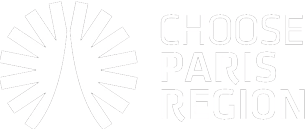
France is one of the best countries to start a business and Paris Region offers a dynamic economic ecosystem that is ripe for businesses to scale and grow. One of the first steps international businesses need to take after they have registered is to decide what structure is best suited to their company’s operations in order to benefit from legal protection. The legal structure chosen by a company will influence its status and taxation. Here are some tips on how to choose the best legal structure for your business in Paris Region.
The first step after registering your business: choosing your business structure
If you are thinking about setting your business up in Paris Region, it is essential that you familiarize yourself with France’s legal and tax system.
There are three main types of business structures available in the country, depending on if it is a long-term or a short-term project, on the investor’s strategy and degree of independence from the parent company.
Long term or short term?
A liaison office is the simplest and least restrictive solution as it acts as the extension of the company in France. Although it requires no registration and is tax-exempt, it can have no commercial activities and holds no independent legal entity from its parent company. This means that there is no requirement to keep accounts.
The second option is the branch, a more intermediate solution where the company is managed via a representative. This is a suitable way for a foreign company to expand to France because, unlike the previous case, it allows your business to conduct commercial activities and to make decisions independently.
The third structure, the subsidiary, is ideal for a long-term project and is by far the most autonomous solution for your business and expansion project in France. You will be able to apply for government support during set-up or expansion and benefit from the R&D tax credit.
The subsidiary model allows you to operate as a French company and as an autonomous legal entity.
French subsidiary models
France has three main types of subsidiaries that vary according to their size and the number of shareholders they involve: SA, SARL and SAS.
If your company is a Business Corporation, its French correspondent will be “Société Anonyme” (SA). This is the most elaborate solution, requiring a minimum starting capital, 37,000 euros. This subsidiary form is managed by a board of directors who must be shareholders and who will also appoint a chairman and a general manager.
However, if you have a Limited Liability Company, it will be referred to as “Société à Responsabilité Limitée” (SARL). This is perhaps one of the most popular legal structures because it is relatively easy to set up and to run. Plus, this type of subsidiary allows there to be more than one manager running the company and, contrary to the previous case, requires no minimum starting capital.
The “Société par Actions Simplifiée” (SAS), a simplified joint-stock company, is regarded as the most flexible and accessible type of subsidiary to foreign companies. There are two possible scenarios in this case: there can be a chairman and one or more Managing Directors. Otherwise, if there is a single shareholder who represents the company to third parties, the subsidiary will be called a “Société par Actions Simplifiée Unipersonnelle” (SASU). The minimum starting capital is not necessary, thus making this structure ideal for raising capital. Most foreign companies opt for a SASU form to maintain control over their subsidiaries.
After choosing the legal structure that suits your company’s operations, the next step is to open a bank account. When you’re registering a business in France at the Centre des Formalités des Entreprises (CFE), you will receive the company registration number (SIRET). You will also be issued an “Extrait Kbis”, a document that grants your company’s independent activities in France.
How will the legal structure impact your business?
The legal structure that you choose will also influence the social status of its employees and the way the company will be taxed.
Influence on taxation
The company's profits may be subject to an option for income tax on profits, “impôt sur le revenu” (IR), or corporate tax, “impôt sur les sociétés” (IS). The SA, SAS/SASU and SARL structures will allow a tax exemption on profits, which means that it can be applied to the entirety of the profits, including remuneration. In fact, they are all subject to corporate tax but can opt for income tax if the company has been established less than 5 years, under certain conditions. Plus, unless the option for income tax has been taken, the executive compensation of these structures is deductible from the company’s revenues.
Social regime
The chairman of a SA or a SAS subsidiary, is considered as an employee and therefore general social security charges are applied to his remuneration. This means that they can benefit more from the optimization between shareholders and remuneration. However, this is not the case for the members of the board of directors in a SA. In the case of a limited liability company, SARL, there are two options: the Majority Manager will be classified as a liberal professional whereas the minimal or equal shareholder is considered as an assimilated employee and will benefit from the social security regime.
Guiding you through the process
Building a business in Paris Region can be successful with the help of our international and highly qualified teams at Choose Paris Region. We can guide you through the process providing you with useful tips and free personalized services.
On top of that, we have developed a brand-new online platform Connect With Our Selected Partners. This useful tool will help you find additional specialized resources, by matching your business’ needs with quality service providers that we have selected.
Thinking about setting up your business in Paris Region? Download our step-by-step guide Start a Business in Paris Region | Choose Paris Region covering all the operational and practical aspects of the process.
Choose Paris Experts

Olivier Allegret
Head of Client SolutionsExpert

